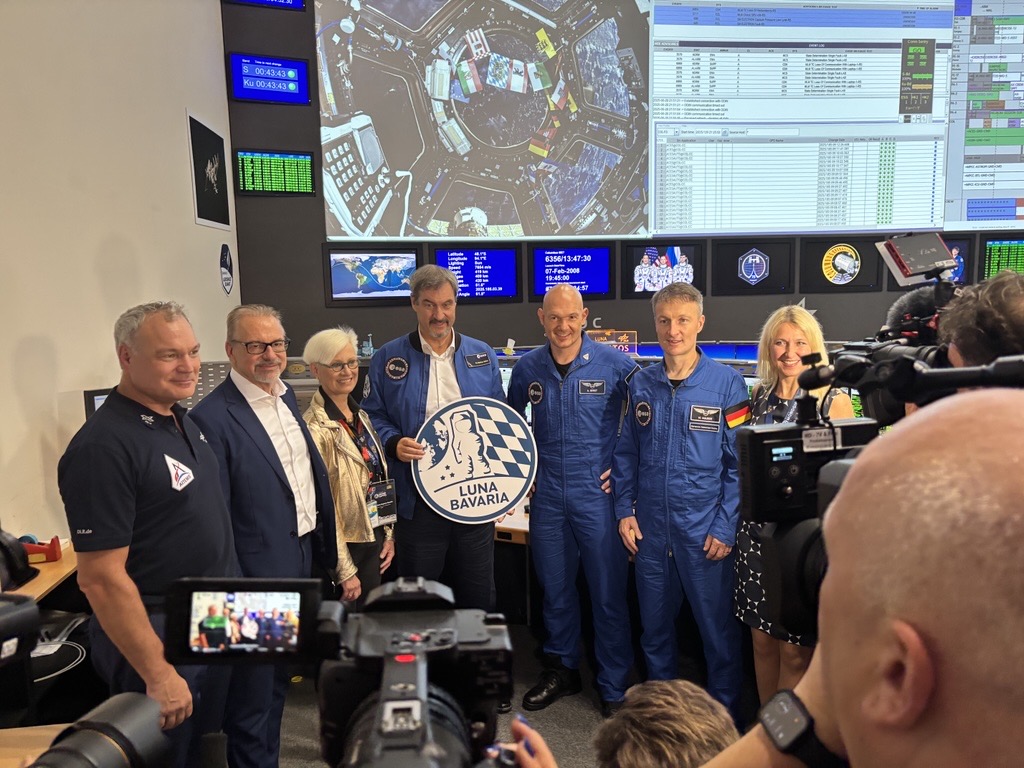diplo.news
Messages in the universe
Column by Gudrun Dometeit

While we on Earth are preoccupied with power games, competitive thinking, and war, we may not notice that all of this is already beginning to shift to another dimension. A few days ago, the US announced plans to install a 100-kilowatt nuclear reactor on the moon by 2030, as a kind of placeholder for an area that the Chinese will not be able to occupy when they send their first taikonauts to the moon at around the same time. Important safety tests for the landing maneuver were successful in June, reported the Chinese space agency. Both nations are also working on self-defense mechanisms in space against enemy flying objects. It is very clear that Beijing and Washington are doing everything they can to become number one in space. “We want to win the second space race,” an employee of the US space agency NASA was recently quoted — alluding to the fact that in 1961 it was the Soviet Union that sent the first human into space with Yuri Gagarin, and not the USA. NASA is relying more and more on private capital for its ambitious plans, including a new space station, which is to replace the 26-year-old international station (ISS) in the medium term. Europeans are also involved in the ISS, which is said to have cost 150 billion dollars by 2010. Germany contributed the lion's share of the European contribution.
And here, too, “space travel is taking off,” as Reinhold Ewald, a former astronaut and North Rhine-Westphalia's first space ambassador appointed this year, said. Bavaria is “space-minded,” praised its Prime Minister Markus Söder (CSU), who never lavished out for his own praise, and cited the new lunar control center in Oberpfaffenhofen and the development of the largest university capacities for aerospace in his federal state as proof. In Bremen, scientists at the Center for Applied Space Technologies and Microgravity are working on the construction of houses on the Moon and Mars for permanent settlement in the future. And in Cologne, astronauts can train for a stay on the moon at the “Luna” Center of the German Aerospace Center and the European Space Agency ESA — under deceptively real conditions that come very close to the rock, sand and zero gravity conditions there. When it comes to simulating the conditions, not even NASA should be as advanced as the Europeans.
However, the next big thing is considered to be a powerful satellite system, because the same problem exists here as with terrestrial defense, or even more so: Europeans are dependent on the US. With Starlink, the US company SpaceX, founded by Elon Musk, operates the world's largest satellite network. It creates Internet connections worldwide, and Ukraine uses it to steer its drones towards Russia. All-based data communication will be an integral part of modern wars. Secure communication and data connections are also of existential importance for the economy. On the initiative of the EU, a number of large European companies came together to create a Starlink alternative with the IRIS2 satellite network. Six billion euros will come from the EU, 550 million euros from ESA, and private financing has not yet been clarified. Aerospace companies as well as the federal states of Bavaria, Baden-Württtemberg and Bremen have recently called on the federal government to spend significantly more money on space travel, for example by increasing funding to ESA.
So if the strategic importance of space travel is so enormous and widely recognized, one wonders why the new Minister of State for Space Policy, Dorothee Bär (CSU), has said so little about this topic in public. After all, there has never been a minister with this title before. Bär's mentor, Söder, is said to have played a role in this. Nevertheless, there is little sign of the dynamism of the first 100 days in other areas of the new federal government's agenda. In the draft budget for 2025, the budget for the Ministry of Research, Technology, and Space is increasing by just under 900 million euros—in total. A mere 2.2 billion euros are earmarked for space travel, while NASA has around 24 billion dollars at its disposal this year.
If innovation is not to remain empty phrases and (digital) European sovereignty is not to remain an illusion, more must happen. “May the Force be with you! “, you want to call out to the minister for a famous sentence from the Star Wars films.




